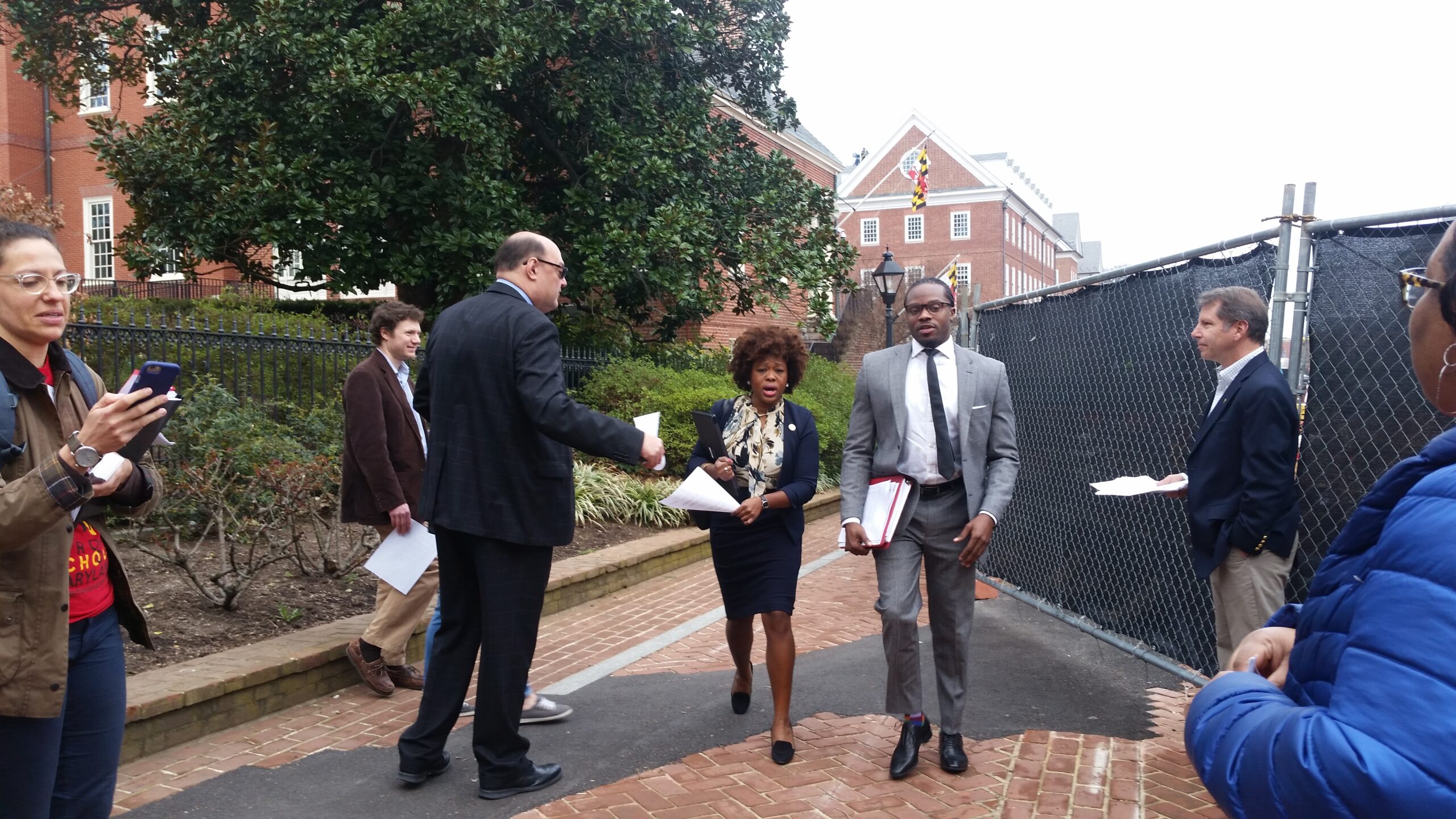Josh Kurtz: How Long Should They Stick Around?

A year ago, it didn’t seem possible that a General Assembly session could be more surreal.
In the course of a few short weeks in 2019, the longest-serving president of the state Senate in U.S. history was handed a dire cancer diagnosis, while the longest-serving House speaker in Maryland history died a day before Sine Die.
Somehow, this year’s session may top last year’s for drama and confusion ― not to mention its slew of bad news.
The outbreak of COVID-19, while mercifully claiming no victims in the legislative orbit so far, is nevertheless an existential threat the likes of which we’ve never seen.
The Legislature has slowly come around to the idea that something drastic must be done. Both the House and Senate will meet all weekend ― I’ve never seen a Sunday session in the two dozen years I’ve followed Annapolis ― and there were hints Thursday that lawmakers may beat it out of town well before this year’s Sine Die, which is April 6.
The presiding officers and their top lieutenants aren’t saying anything about an early exit, and in fact, many are publicly and in some cases even privately resolute about completing the entire 3 1/2 weeks that remain.
The general sense around Annapolis, though, is that the House is more anxious than the Senate to call it a year. That may just be the function of interior design: delegates, after all, are crammed together in the House chamber, while senators enjoy a decent amount of breathing room. Also, a dozen Republican House members ― and presumably, some staffers ― attended the CPAC conference two weeks ago, where at least one person present was known to have COVID-19.
It’s true that the public and most staffers will be banned from the legislative complex through the duration of session. Lawmakers are being urged to expedite their work, and public testimony will only be submitted in writing, electronically.
Even in a normal year, the State House becomes a hothouse environment, and “kennel cough” moves swiftly among legislators, staffers, lobbyists, advocates and reporters. As Del. Nicole Williams (D-Prince George’s) put it Thursday night when she urged her colleagues to attend a “members-only” party hosted by newly-appointed lawmakers, even as other events are being canceled, “we’ve been breathing each other for two months anyway.”
But what happens if a lawmaker starts displaying symptoms of COVID-19 in the next few days, or tests positive? All it took was one NBA player to contract the virus, and the league put its season on hold.
The 47-member Senate has 10 septuagenarians or octogenarians and three more who are 68 or older, while the 141-member House has another 10 members in their 70’s and 80’s. Everyone is at risk to one degree or another.
Meanwhile, registered lobbyists, who already wield so much power in the Legislature, should have even more of it in the days ahead. Without members of the public roaming around the State House and legislative buildings to distract lawmakers, lobbyists will have credentialed, unfettered access to the people they’re paid to influence, while the public is literally shut out.
On a brighter note, this crisis by most accounts has produced the closest working relationship yet between Gov. Lawrence J. Hogan Jr. (R) and legislative leaders. They have conferred early and often over the past couple of weeks ― after 5 1/2 years of talking past each other.
But Hogan may grow irritated if lawmakers hang around town longer than necessary.
Statutorily, the Legislature must approve the state budget during a legislative session — and that’s it. Of course, legislators have priorities of their own, including passing the Blueprint for Maryland’s Future and all its funding elements, and a package to bolster Maryland’s thoroughbred racing industry.
The blueprint in particular ― an expensive and expansive education reform package three years in the making ― is freighted with political implications and calculations. Democratic legislators want it, Hogan doesn’t want to pay for it, and a collision is inevitable.
But how and when should that battle play out in the midst of a global pandemic?
Does it become politically more difficult for legislative leaders to peddle tax increases and other revenue enhancements when the U.S. and its economy may start resembling the bleakest Cormac McCarthy novel in just a matter of weeks? Wouldn’t it make more sense to pause the debate ― and pause the session ― until a semblance of normalcy returns?
The final days of any legislative session are like a bazaar, a frenzy of activity as lawmakers fight desperately to get their bills over the finish line. That spectacle ― and the attendant confusion ― will be magnified under the present circumstances.
Sticking around Annapolis longer than necessary ― especially when state leaders are telling so many of their constituents to stay home and remain calm ― will produce bad optics for the Legislature and seems like a bad idea. And lawmakers should be under no illusions that Hogan, with his finely-tuned political antennae, won’t be prepared to hit them over the head for it ― even in this fleeting moment of cooperation and collaboration.





 Creative Commons Attribution
Creative Commons Attribution